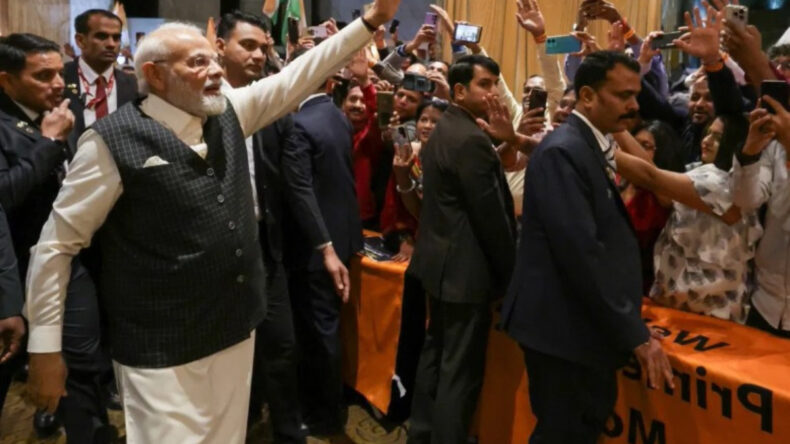Introduction
India’s presence on the global stage has been steadily growing, with its diverse culture and regional richness being showcased through various international events. Prime Minister Narendra Modi’s government has embarked on a mission to bring India’s cultural and regional diversity to the forefront, and this includes hosting G20 events across the length and breadth of the country. However, this move has not been without controversy, as China and Pakistan have objected to the decision to hold one of the events in Kashmir, which they refer to as “disputed.” Additionally, China disputes India’s sovereignty over Arunachal Pradesh. In this article, we will explore India’s perspective on hosting G20 events in Kashmir and Arunachal Pradesh, the objections raised by China and Pakistan, and the implications of this diplomatic assertiveness.
India’s Cultural and Regional Showcase
Under Prime Minister Modi’s leadership, India has undertaken an ambitious initiative to showcase its cultural and regional diversity on the global stage. This endeavor involves hosting G20 events in various parts of the country. By the time India’s G20 presidency term ends, more than 220 meetings will have taken place across 60 cities in all 28 states and eight union territories. This initiative is not just about diplomacy but also about presenting India’s rich tapestry of cultures and traditions to the world. Over one lakh participants from around 125 nationalities will witness the skills and talents of Indians during these events.
The Controversy Surrounding Kashmir
One of the most significant controversies in this endeavor is the decision to hold a G20 event in Kashmir. Both China and Pakistan have raised objections, terming Kashmir as “disputed.” India, however, has firmly dismissed these claims. Prime Minister Modi, in an interview, articulated India’s stance by emphasizing the vastness, beauty, and diversity of the nation. He argued that it is only natural for G20 meetings to be held in various parts of the country, including Kashmir.
India’s perspective on Kashmir has long been that it is an integral part of the country. The region’s status has been a subject of dispute between India and Pakistan for decades. India’s assertion of its right to host international events in Kashmir signifies its determination to exercise its sovereignty over the region and challenge external objections.
China’s Objection Over Arunachal Pradesh
China’s objections are not limited to Kashmir; it also disputes India’s sovereignty over Arunachal Pradesh. India has been resolute in rejecting these claims. When G20 events were held in Arunachal Pradesh in March, India made it clear that it has the prerogative to hold meetings on its own territory. This assertion not only highlights India’s territorial sovereignty but also sends a strong message to China about its determination to protect its interests.
The Diplomatic Implications
India’s decision to host G20 events in regions contested by China and Pakistan carries significant diplomatic implications. It underscores India’s readiness to challenge external objections and firmly assert its sovereignty over disputed territories. This assertiveness aligns with India’s broader foreign policy goals, which emphasize its emergence as a major global player. By hosting international events in these regions, India seeks to normalize its presence and governance in areas that have been contentious for years.
From a diplomatic perspective, India’s stance can be seen as a bold move to shift the narrative around these disputed regions. It challenges the conventional wisdom that certain areas are off-limits for international events due to political disputes. By hosting G20 meetings in Kashmir and Arunachal Pradesh, India aims to demonstrate its administrative capability, infrastructure, and the willingness to engage with the international community in all parts of its territory.
Furthermore, India’s assertiveness in the face of objections from China and Pakistan sends a clear message to the international community. It signals that India will not be deterred by external pressure and is willing to engage in diplomacy on its own terms. This approach may pave the way for future discussions and negotiations on the long-standing disputes.
Conclusion
India’s decision to host G20 events in Kashmir and Arunachal Pradesh is a manifestation of its diplomatic assertiveness and its determination to showcase its cultural and regional diversity to the world. While objections from China and Pakistan persist, India has firmly dismissed these claims, emphasizing its sovereignty over these regions. This assertiveness carries significant diplomatic implications, challenging the status quo and signaling India’s readiness to engage with the international community on its own terms. As India continues to host G20 events across the country, the world will be watching closely to see how this bold diplomatic move unfolds and its potential impact on regional dynamics. In addition to the diplomatic and territorial implications, India’s proactive approach to hosting G20 events in disputed regions like Kashmir and Arunachal Pradesh reflects its commitment to economic development and regional integration. By bringing international forums and investments to these areas, India aims to bridge developmental disparities and uplift the living standards of its citizens in these regions. This approach aligns with the government’s broader vision of fostering economic growth and inclusivity across the entire nation, demonstrating that diplomacy and development can go hand in hand, even in areas with historical disputes.












